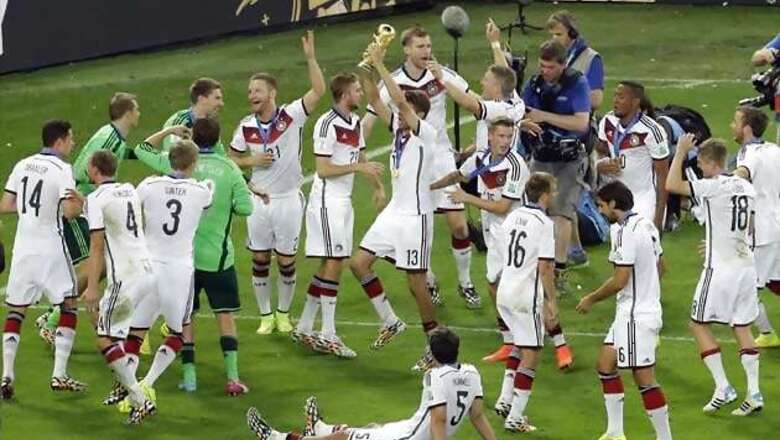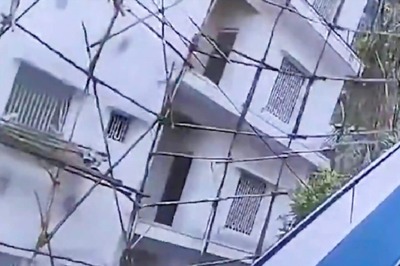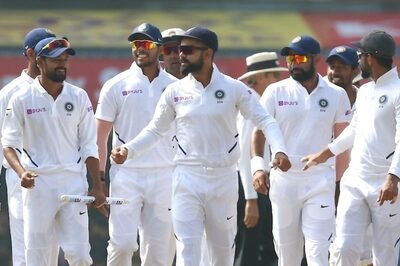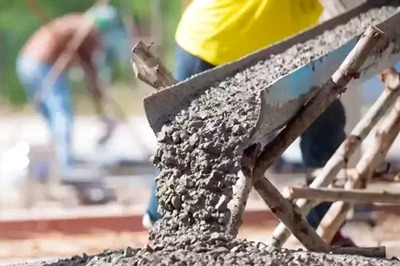
views
The omens were not good. In late May, as the Germany football team gathered at their World Cup training camp in Italy, news broke that manager Joachim Loew had been stripped of his driver's license for six months after a series of speeding tickets.
Days earlier, Kevin Grosskreutz, a versatile defender, had been caught urinating in the lobby of a luxury hotel in Berlin.
Two other players, attending a public relations event, had been involved in a high-speed car crash that seriously hurt two pedestrians.
The troubled start fuelled public panic about Loew's coaching strategies.
The training camp, designed to get the players ready for the tropical heat of Brazil, was beset by cold temperatures and heavy rain. Then, in a friendly against Armenia before their departure for Brazil, Germany lost Marco Reus, one of the team's best players, to an ankle injury.
With a "golden generation" of some of the best soccer players Germany has ever produced, there is little doubt the pressure on the 54-year-old Loew was building as he set off for Brazil.
Eighty one million Germans - desperate for a fourth world title after wins in 1954, 1974 and 1990 - felt it was time for the sharply dressed, mop-haired manager to deliver or quit.
The "Bundestrainer" - as Germans call the head coach - had taken his talent-laden team to the semifinals of their last four major international tournaments, but failed to win a trophy.
That was just not good enough in a country where the World Cup has been an integral part of post-World War Two identity ever since the 1954 "Miracle of Berne".
That improbable triumph, historians say, gave the broken, bombed-out nation such a boost it helped spark West Germany's economic miracle.
So how did Germany overcome all their problems and go on to beat hosts Brazil in a sensational 7-1 semi-final thrashing before edging Argentina 1-0 in extra-time in the final?
The answer: attention to detail, ignoring distractions and milkshakes.
Talking to reporters after arriving at Germany's Brazilian base in Santo Andre, an isolated town on the Atlantic shore, Loew outlined his thoughts.
"I've been around long enough to realise that some of these same kinds of debates repeat themselves from tournament to tournament," he said.
"Obviously people are going to have different opinions on the lineup and on the tactics. But I'm going to try to stay away from of all that."
SIX WARM-UPS
More than any other squad at the World Cup, Loew and his players treated each of their six matches as warm-ups along the way to the final they always seemed confident of reaching - and winning.
Victories in the group stage and the early knock-out phase brought not celebrations but a quiet round of banana milk shakes at the German compound.
Loew repeated a simple sporting mantra after each win - victory was meaningless unless they won the cup.
With customary German thoroughness, Loew and his coaches were as well-prepared as possible. They spent two years focusing on every detail from tactics to vegetation.
A team of 50 students at the University of Cologne compiled an enormous data base of information about every team, their strategies and their players.
German staff took care to make sure the grass on their training pitch near their compound was "South American" and identical to that used in Brazilian pitches.
Loew picked the base because it was two hours flying time from the bright lights of Sao Paulo and Rio de Janeiro, where many of the other 31 teams set up.
He also wanted his players to be in a tropical part of Brazil to get ready for the scorching afternoon conditions they would experience.
To blot out distractions further Germany struck a deal with a German developer in Brazil to build them a spanking new 14-villa luxury compound they dubbed "Campo Bahia".
The fortress, erected in the middle of a poor town of 800 residents, was protected by high walls and armed guards.
Some 30 kilometres (18 miles) and a 15-minute ferry-crossing from the nearest city of Porto Seguro, the camp's isolation meant no distractions, no sponsors, no well-wishers and no journalists to stir dissent.
"We're glad that none of you tried to climb over the walls and sneak into the camp," team manager Oliver Bierhoff told reporters on the eve of the final. "The conditions for the team to focus and concentrate were ideal."
Loew and his players kept their distance from the 100 or so German reporters who followed the team. Unlike his predecessors Rudi Voeller and Juergen Klinsmann, Loew did not to speak to journalists on the plane journey to the World Cup.
Once in Brazil, reporters were fed information in tightly controlled daily news conferences.
Only the odd player and occasionally an assistant coach were sent up to answer questions. Loew attended just two in five weeks and even bluntly told the reporters that he was not reading German newspapers - and neither were his players.
The manager was spotted almost every day jogging or walking along the beach.
"That's where he lets off steam," said captain Philipp Lahm.
NEW PHONES
The players also got new cell phone numbers before the tournament, effectively cutting off their media contacts.
"Sorry, I don't have my cell phone anymore so I can't get your text messages," Loew told one exasperated tabloid reporter.
Klinsmann's assistant coach from 2004 to 2006, Loew was part of a revolution in the German team.
Klinsmann, a former Germany striker, added physical fitness specialists, a psychologist and urged the team to play more open, attacking soccer. That was credited with helping Germany to the European Championship final in 2008 and the semi-finals of the World Cup in 2006 and 2010.
But after Loew's entertaining squad lost yet another semi-final at the 2012 European Championship to outsiders Italy, the mood began to turn.
Loew had made wholesale changes before the Italy match. When Germany lost, critics said Loew was guilty of over-coaching and was a control freak.
In Brazil he decided he would not get burned like that again and re-jigged his high-scoring team to give it more defensive strength by including four towering centre-backs, sacrificing speed and crossing proficiency for a tighter defence.
The move was poorly understood and widely criticised. The German public wanted attractive, high-scoring play and assured victories.
In the eyes of many, Loew also committed a cardinal sin by putting his captain Lahm, considered by many to be the world's best right back, into midfield for the first four matches.
Germany struggled at times and the criticism escalated. When a reporter accused Loew of appearing to be content with the shaky 2-1 extra-time win over Algeria in the last 16, Loew snapped.
"Should I really be disappointed that we made it to the quarter-finals?," he said.
An opinion poll showed 93 percent of Germans wanted Lahm to return to full back and Loew moved him there for the final three matches.
"No, I don't have a closed mind when it comes to advice," Loew said. "A team needs to improve their performance through the course of the tournament. That's the art that a team needs to master."
After the victory over Argentina, Loew smiled for the first time in weeks and said he was keen to fulfil his contract, which has another two years to run.
"This is something for eternity," he said. "We're the first European team to win the World Cup in South America. It took 10 years of hard work to get here."


















Comments
0 comment